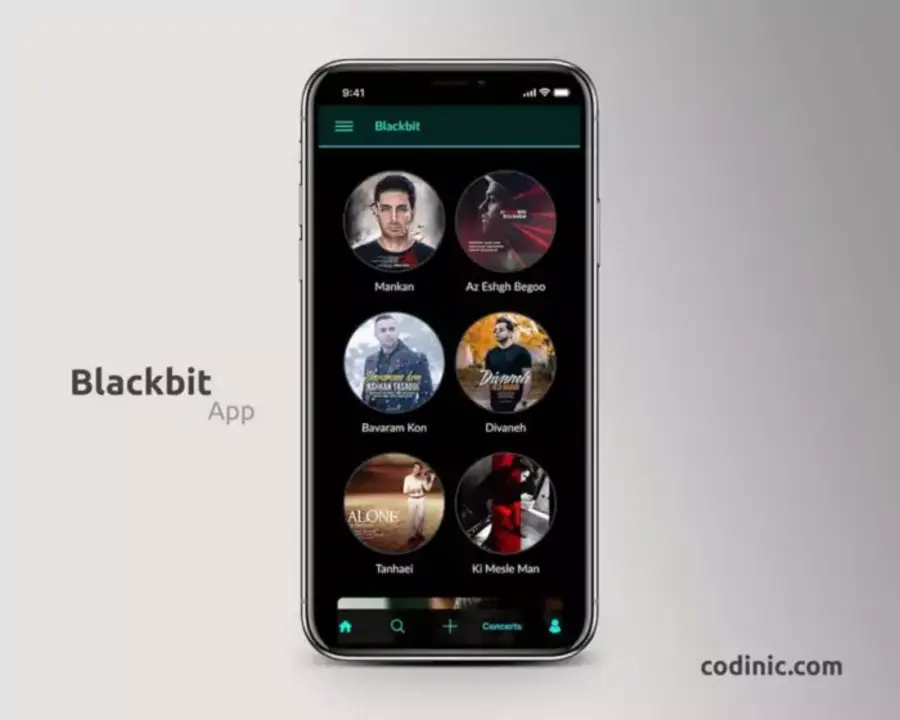What is Mobile Application Development?
When we say what mobile application development is, the first definition that comes to mind is the development of software designed for a specific purpose that runs on mobile devices such as smartphones, tablets or smart watches. You can usually download these applications from application stores (such as the App Store or Google Play) and install them on your device.
Simply put, mobile apps are programs you use on your computer that are adapted for mobile devices. For example, the mobile version of the computer program you use to send email is an email app.

Importance of Mobile Applications
With the introduction of smartphones into our lives, mobile applications have become indispensable. Phones that we used to use only for making calls and sending messages now accompany us in many areas from work to play, from shopping to socializing. Mobile applications are at the center of this transformation.
The importance of mobile applications stems from their ability to personalize and facilitate the user experience. Mobile applications, which offer a faster and more interactive experience compared to websites, connect users to brands more and increase loyalty. They also offer the opportunity to constantly communicate with users thanks to notifications. In this way, businesses can offer special campaigns to their customers, inform them about campaigns, and customers can be informed about instant updates.
Today, mobile applications are used in almost every sector. Thanks to mobile applications in many areas such as e-commerce, banking, health, education, gaming, and social media, things have become faster and easier. For example, while users can buy the product they want with just a few clicks through an e-commerce application, users can manage their accounts and transfer money through a banking application.
What is mobile application development? Applications have become an indispensable part of our lives today. Mobile applications are one of the most effective ways for businesses to reach new customers and satisfy existing customers, and are also a tool that makes life easier and more fun for users. For this reason, it is predicted that mobile applications will become even more important in the future.
Basic Concepts of Mobile Application Development
In today’s digital world, mobile application development is of great importance. What is Mobile Application Development : While smartphones have become an indispensable part of our lives, mobile applications have become tools that make our work easier, entertain us, and provide access to information. So how are these applications developed and what are their basic concepts?

Platforms
Mobile applications are generally developed on two main platforms:
iOS: Swift or Objective-C programming languages are used for applications running on Apple devices (iPhone, iPad).
Android: Java or Kotlin programming languages are preferred for applications running on Android operating system devices.
User Interface (UI) and User Experience (UX)
UI: The visual design of the application is the placement of elements such as buttons and menus that allow users to interact with the application and the use of visual elements.
UX: Refers to the user’s experience when interacting with the application. A user-friendly, simple and understandable interface forms the basis of a successful application.
Programming Languages
Swift: A modern and secure programming language developed by Apple for iOS applications.
Objective-C: An old programming language used for iOS applications before Swift.
Java: An object-oriented programming language used in Android applications for many years.
Kotlin: A more modern and secure programming language developed by Google as an alternative to Java.
Development Environments (IDEs)
Xcode: An integrated development environment provided by Apple for developing iOS applications.
Android Studio: An integrated development environment provided by Google for developing Android applications.
Databases: Mobile applications need databases to store user data. Local databases such as SQLite, Realm, or cloud-based databases such as Firebase, AWS can be used.
API: Interfaces that allow applications to communicate with external services (e.g. maps, social networks).
Cross-Platform Development
React Native: Popular framework that allows you to develop iOS and Android applications using JavaScript.
Flutter: Framework developed by Google that allows you to develop iOS and Android applications using the Dart programming language.
Development Process
Idea and planning: The purpose, target audience and functionality of the application are determined.
Design: The user interface and user experience of the application are designed.
Development: The application is coded using the selected programming language and development environment.
Tests: Application errors are detected and corrected.
Release: The application is published in the relevant application store (App Store, Google Play).
All these concepts may come across during the mobile application development process. This information will contribute to your understanding of the subject while developing your mobile application or receiving service.
Why Should You Develop a Mobile App?
Nowadays, smartphones are at the center of our lives. People are constantly using their mobile devices to meet their needs and access information. This situation presents a great opportunity for businesses. By developing your own mobile application, you can provide a better experience to your customers, increase brand awareness and increase your sales. In a sense, you can see this as a new way to grow your business.

Benefits of Mobile App Development for Businesses
Customer loyalty: Mobile apps allow you to establish a direct and personal connection with your customers. You can delight your customers and increase their loyalty to your brand with special campaigns, loyalty programs, and notifications.
Brand Awareness: Your app, which is available in mobile app stores, is a great platform to reach your potential customers. You can increase your brand awareness by regularly updating and marketing your app.
Stand out from competitors: If you want to stand out from your competitors and offer a unique customer experience, developing a mobile app is the right step.
Data Analysis: Mobile apps allow you to collect valuable data on user behavior. By analyzing this data, you can better understand the needs of your customers and shape your products or services according to these needs.
Increase sales: Mobile apps allow your customers to easily purchase your products or services. You can increase your revenue with features such as in-app purchases and subscription models.
Customer support: Mobile apps allow you to quickly and easily answer your customers’ questions. You can increase customer satisfaction with features such as chatbot or live support.
Why Should You Start Develop Mobile App Now?
With the rapid increase in mobile device usage, the importance of mobile applications is increasing day by day. If you want to be one step ahead of your competitors and satisfy your customers, you should take action to develop your own mobile application.



Pingback: Mobile App Types - Codinic
Pingback: How to Develop a Cloud-Based Mobile App? - Codinic
Pingback: Cloud Computing Models: SaaS, PaaS and IaaS - Codinic